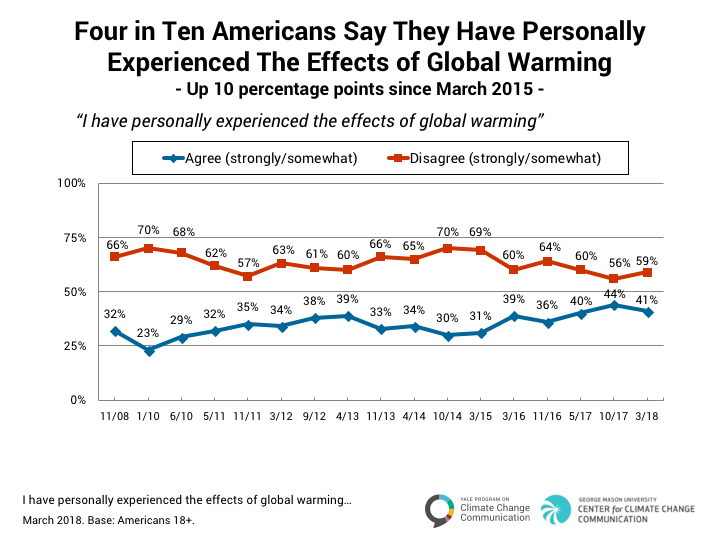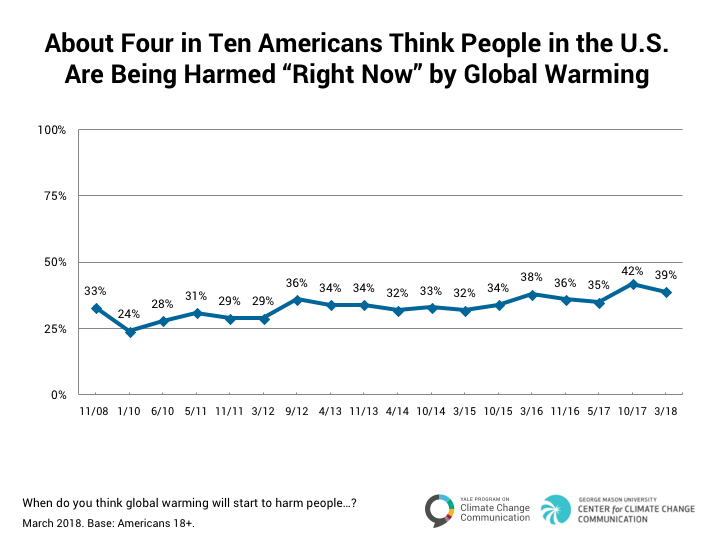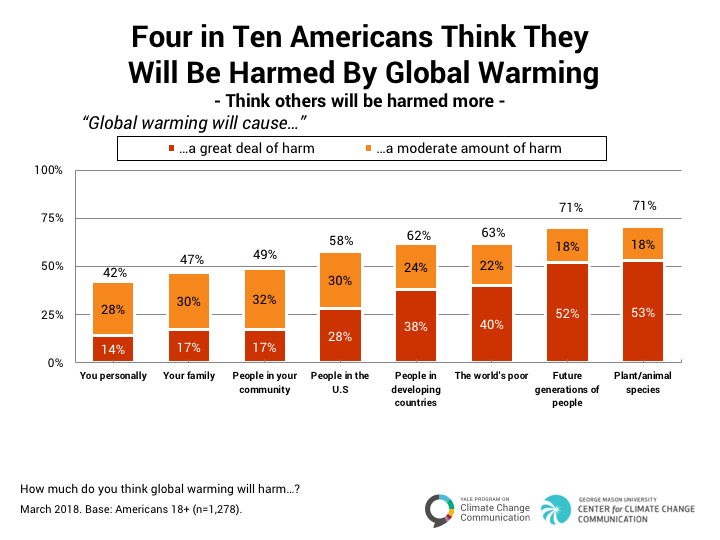Report · Apr 17, 2018
Climate Change in the American Mind: March 2018
By Anthony Leiserowitz, Edward Maibach, Connie Roser-Renouf, Seth Rosenthal, Matthew Cutler and John Kotcher
Filed under: Beliefs & Attitudes
3. Perceived Risks of Global Warming
3.1. Four in ten Americans say they have personally experienced the effects of global warming.
Four in ten Americans (41%) say they have personally experienced the effects of global warming, while about six in ten (59%) say they have not.
The percentage of Americans who say they have personally experienced the effects of global warming decreased by three percentage points from its all-time high in October 2017, but has increased by 10 percentage points since our March 2015 survey.
3.2. About four in ten Americans think people in the U.S. are being harmed “right now” by global warming.
About four in ten Americans (39%) think people in the U.S. are being harmed by global warming “right now,” three percentage points lower than in our previous survey in May 2018.
3.3. Four in ten Americans think they will be harmed by global warming, although they think others will be harmed more.
Many Americans understand that global warming will cause harm. Americans are most likely to think that plant and animal species and future generations of people (both 71%) will be harmed a “great deal” or a “moderate amount” by global warming. Fewer think the world’s poor (63%), people in developing countries (62%), and people in the U.S. (58%) will be harmed. Half or fewer also think people in their community (49%), their family (47%), and they themselves (42%) will be harmed.
The proportions of Americans that think global warming will cause harm have decreased since October 2017 and are now about the same as in May 2017 (see Data Tables). The proportions that think plant and animal species and future generations of people will be harmed have decreased by 4 percentage points since last October, and there have been larger decreases in the proportions of Americans who say global warming will harm the world’s poor (-8 points), people in developing countries (-9 points), people in the U.S. (-9 points), people in their own community (-6 points), their own family (-7 points), or themselves (-8 points).


